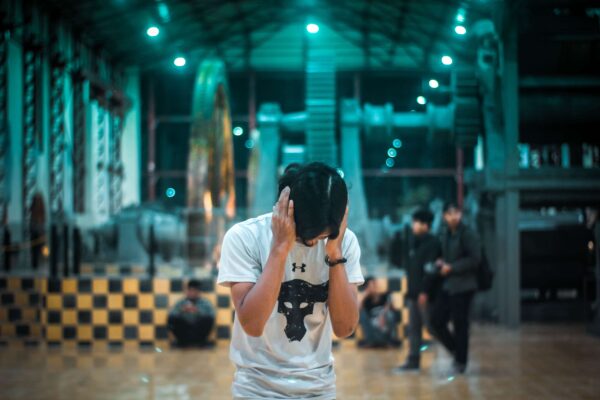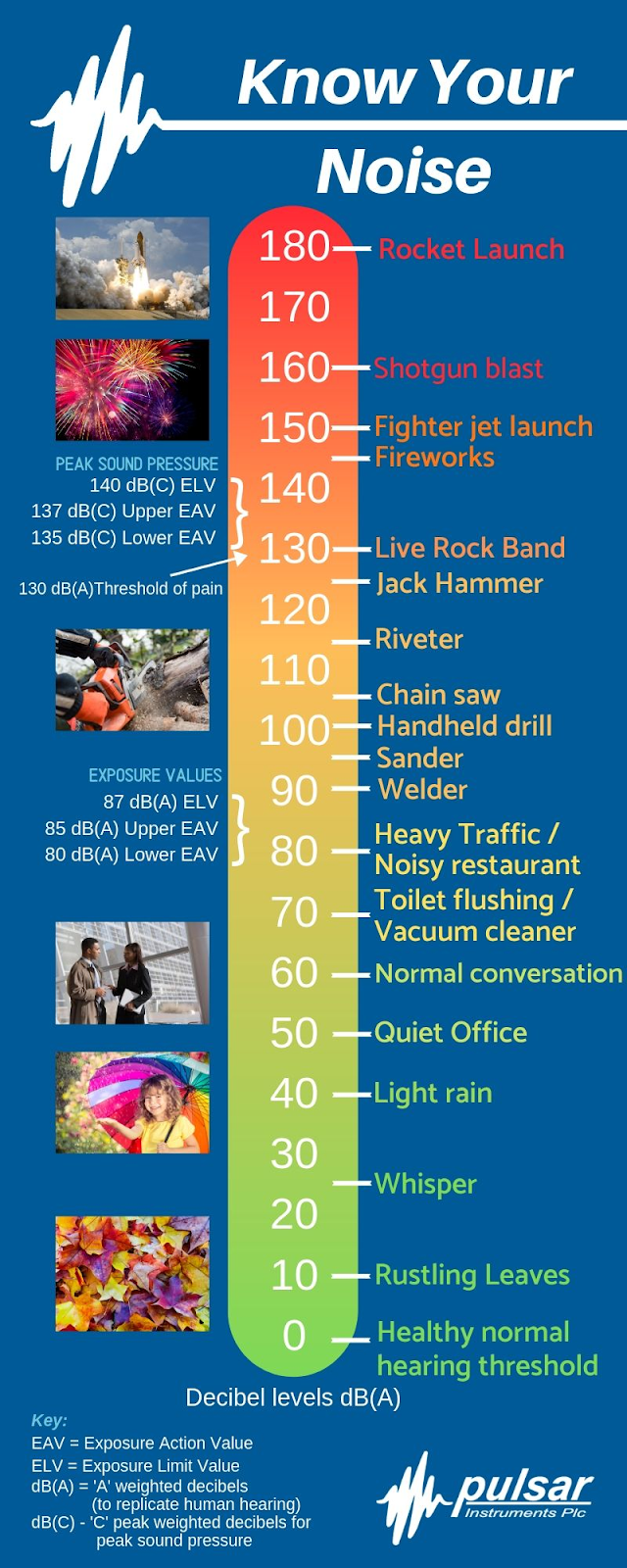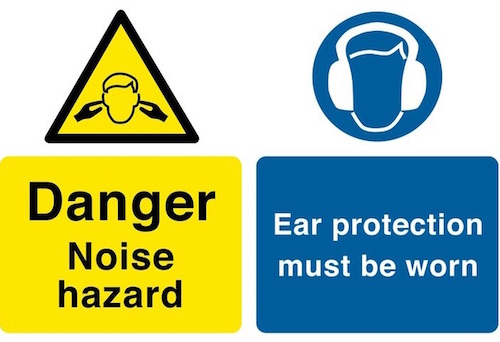Struggling with hearing? Request a hearing test appointment today.
Can ears heal after loud noises? Healing ear damage from loud noises
Are you experiencing ear pain from loud noise? Generally, after exposure to moderately loud noises, any induced hearing loss or discomfort, such as a temporary threshold shift (TTS), might recover within a few minutes to a few hours. However, if the exposure is longer or the noise louder, you may be suffering from ‘acoustic shock’ or ‘acoustic trauma,’ which can be immediate or delayed after exposure to loud noise.
We’re often asked by patients – can ears heal after loud noise damage? Sometimes ears can recover from loud noises, but in other cases, there’s no fix. In this article, we examine what to look out for so that you can protect your hearing.
Is your Hearing muffled after a concert, construction noise or an explosion?
Of all the many hazards in our homes and outside, we rarely give a thought to those that can damage our ears and hearing. Perhaps, if you were somehow using a jackhammer to break up a pavement, you’d take precautions — like wearing ear protection — but for the most part, we’re not all that bothered about loud noise — until it’s too late.
Take rock and other concerts, indoors and out: people flock to them because they want to hear their favourite music and tunes blasted out as high as possible, and to such a level that you can feel the sound vibrations bouncing off your body. It’s a thrilling experience but one that may have lasting, negative effects.
Because in such a setting, in the open part that’s your ears, the sound waves are entering and may be causing damage to the delicate internal structures. This could result in short-term hearing problems or, if regularly exposed to loud noise, it may become irreparable and, therefore, permanent.
So can ears recover from loud noises, generally? In this post, we’re going to draw on our many years of experience as hearing loss specialists and examine the connection between noise and hearing issues, what kind of noises can be problematic and should be avoided, and if your ears can recover after exposure to loud noise.
How Does Noise Cause Hearing Loss?
To understand how loud noise can cause hearing loss, we must first look at what noise is. Everything you hear is a form of energy transmitted through the air by sound waves; this explains why you wouldn’t be able to hear if you, for some reason, found yourself floating about in space, where there’s no medium — air — to carry sound waves. This differs from, say, radio waves, which are another kind of wave (electromagnetic), and therefore, don’t need air or anything else to move through.
One of the most delicate parts of the ear are the tiny hairs lining the middle ear. There are around 15 thousand of these structures, and they play a fundamental part in the hearing process. When sound waves enter the ear canal, the hair cells bend in response to the level of sound they encounter, passing the waves further down into the ear.
But if the sound is too high because there’s too much energy, the hair cells will bend over and stay in the position, meaning they won’t be doing their job and you won’t hear as well. This is something many people have experienced after attending loud football matches, for example, some sounds can be muffled for hours or even days afterwards.
Symptoms of ear damage from loud noise
Typically you may experience the following symptoms of ear damage when exposed to loud noise:
- Temporary Hearing Loss: Immediately after exposure to loud noise, there might be a noticeable decrease in hearing ability. Sounds may seem muffled, or you might have difficulty understanding people speaking. This condition is often temporary and may recover within a few hours to a few days.
- Tinnitus: Are your ears ringing after a night out or after a concert? Tinnitus is a ringing, buzzing, hissing, or roaring sound in the ears, which may be temporary or permanent. It’s a common symptom experienced immediately after exposure to loud noise and can become chronic in some cases. Related Reading: How to get rid of Tinnitus at night
- Hyperacusis: An increased sensitivity to certain frequencies and volume ranges of sound. After exposure to loud noise, normal sounds may seem intolerably loud and uncomfortable.
- Pain or Discomfort: Loud noise can cause immediate pain or discomfort in the ears, which typically subsides after moving away from the source of the noise.
- Ear Fullness: You might experience a feeling of fullness or pressure in the ears, similar to what you might feel in altitude changes, like during takeoff and landing on an aeroplane.
- Distortion or Difficulty Understanding Speech: Difficulty in understanding speech, even if it’s loud enough, especially in noisy environments, may indicate damage from loud noise exposure.
- Permanent Hearing Loss: With repeated or severe exposure to loud noise, the damage to the inner ear can become permanent, leading to irreversible hearing loss.
- Balance Problems: Remember that the inner ear is also responsible for balance, damage from loud noise can sometimes affect your balance, leading to dizziness or problems with equilibrium.
Recovery after Exposure to Loud Noise: How to heal ears after loud noise
In most cases, the hair cells eventually recover and revert to their original, upright position, and then your hearing is fully restored. But if they frequently encounter loud noise or if it’s particularly loud on any one occasion, the hair cells might die, and they don’t regenerate or grow back — resulting in permanent hearing loss.
The eardrum is also affected by noise that’s too loud. Its function is to vibrate when sound waves hit it to send sounds further into the ear for processing. As many people know, loud noise can tear or perforate the eardrum, and so, you don’t hear properly for a while.
As with damaged hair cells, the good news is that the eardrum is capable of repairing itself when it’s torn and is usually back to its old self in a few weeks — although in some cases, intervention in the form of a patch is required to assist in healing.
Loud noises can also damage nerves in the ear, causing symptoms in addition to hearing loss, like tinnitus, vertigo and numbness in the face. If the auditory nerve is damaged due to loud noise, it most likely will stay that way and it can’t be fixed. People suffering from auditory nerve damage will usually require hearing aids to recover some of their hearing ability.
How long will my ears hurt after a loud noise?
The time it takes for your hearing to recover after loud noise differs from person to person. Your recovery time depends on the intensity and duration of the noise, as well as your susceptibility to hearing damage.
Generally, after exposure to moderately loud noises, you should reduce from noise-induced hearing loss or discomfort, within a few minutes to a few hours. For example, your hearing is likely to return to normal the morning after a concert, with no lasting effects for most.
However, if the noise is particularly loud such as an explosion, gunfire close to the ears, or construction noise, it might take a day or more for hearing to feel “normal” again. This is often accompanied by tinnitus (ringing in the ears) and a sensation of fullness or pressure in the ears.
In some cases, especially with very loud sounds or prolonged exposure to high-decibel environments without proper ear protection, the damage can lead to permanent hearing loss, known as a permanent threshold shift (PTS). Once hair cells in the cochlea are damaged or destroyed, they do not regenerate, leading to permanent changes in hearing capability.
If you experience a noticeable reduction in hearing ability or persistent symptoms like tinnitus or ear fullness after exposure to loud noise, it’s essential to book a hearing test with Regain Hearing. We can assess the extent of any damage and recommend appropriate actions or treatments to help manage symptoms or prevent further damage. Early intervention is crucial in managing hearing health effectively.
 What do our audiologists say?
What do our audiologists say?
We often treat patients concerned about their hearing after exposure to loud noises. While our ears are remarkably resilient, they have their limits! We usually explain that after being exposed to loud sounds, such as a concert or a noisy work environment, it’s normal to experience a temporary shift in hearing threshold. This can manifest as muffled sounds or a ringing in the ears, known as tinnitus. For most, this is a temporary condition that will improve within a few hours to a couple of days as the ears recover. However, repeated exposure to loud noises can lead to permanent damage over time. I cannot stress enough the importance of using hearing protection in loud environments and giving your ears a chance to rest after noise exposure. If you’re experiencing persistent hearing loss or tinnitus that doesn’t improve, it’s vital to seek professional help.
Lee Fletcher, Regain Hearing. (RHAD), (BSHAA), Ba(Hons)
Protecting Your Ears from Loud Noises
It’s hard, if not impossible, to avoid harmful noise in our busy — and loud — world. Just stepping outside your door can expose your ears to the deafening roar of road, rail and air traffic. As we’ve seen, sound is energy — and too much of it can be dangerous. Sound is measured in decibels (dB), and if you’re having a conversation with someone at a normal level — as in, not shouting or roaring at each other as if you were in a pub or club — the sounds you both emit would be around 60 dB (a nightclub can be close to 100 dB and a packed pub up to 80 dB).
If you’re mowing the lawn with a petrol lawnmower, your ears would receive around 90 dB of sound — and that jackhammer we mentioned at the outset? The common construction tool you often see at the roadside would deliver 130 dB to your delicate ears; it’s about the same noise level as an aircraft taking off (in-flight and in the cabin, the roar is around 105 dB). That’s about the same as a rock concert, while football matches average around 80-90 dB.
The bad news is that sounds over 120 dB can cause direct and immediate damage to your ears, and if you’re regularly exposed to levels around 70dB for long periods, the hearing structures of your ears may not be able to cope and will almost likely become damaged.
Hazardous Noise at Work and Elsewhere
Industrial settings with lots of heavy and other machinery that emit high levels of noise are another concern, but employers have a legal duty of care towards their staff and must provide adequate ear protection in such auditory-hazardous environments.
Clearly, no one is going to wear earplugs or other forms of ear protection at nightclubs, pubs or rock concerts, but if you find yourself regularly exposed to high levels of noise elsewhere, such as while travelling, it’s vital that you use something to block out some of the sound waves to give your ears a reprieve. Custom-made earplugs that are perfectly shaped to your ear, such as we provide, are an excellent form of protection.
In the long run, your ears will thank you, and you’ll have excellent hearing for many years to come.
If you’re suffering from temporary hearing loss that’s perhaps due to exposure to loud noise and would like to know what’s going on and get a hearing test to determine the level of damage, get a free consultation with the experts at Regain Hearing today.


 What do our audiologists say?
What do our audiologists say?
